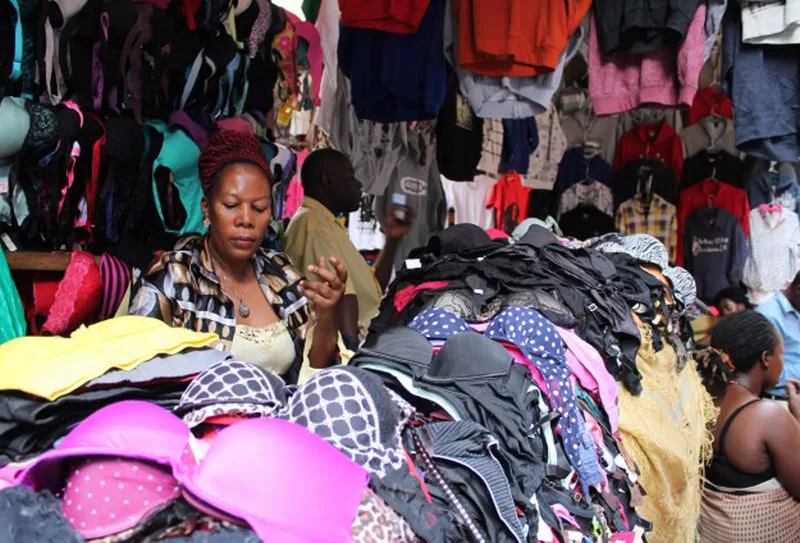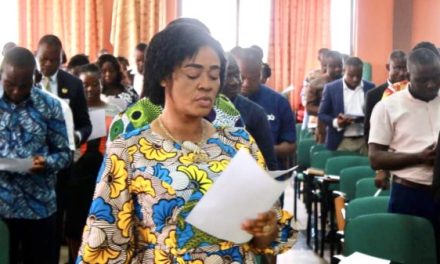
Standards Authority To Enforce Law On Banned Second-Hand Under Garments, Others4 min read
Posted by time97.7fm | July 29, 2023 1:16 pm | News | 0 |

The Authority in 1994 banned the importation and sale of secondhand goods, which include panties, braziers, handkerchiefs and singlets in the country under the Legislative Instrument (LI 1586).
In an interview with Mr Stephen Adu, Head of Import Inspection at the GSA, he said the use of second-hand undergarment was of public health concern and that users risked infections, particularly, skin diseases.
He said: “There are discharges from the body and vagina from the original owners, which come directly in contact with these undergarments, or underpants. Now, when the microbes in them get in there, they can become dormant for a period of time. If they are not properly washed, disinfected, and dried, once the environmental conditions are ripe, they begin to grow again leading to all manner of infections.”
Despite the ban on those items, the business is flourishing in markets in Accra, checks by the Ghana News Agency have revealed.
Mr Adu said though there had been rigorous inspections at the port and borders, it appeared the inspections had not been very effective, hence the introduction of the “Standard quality policemen” by the GSA to engage in quality checks were necessary.
He told the GNA that the 200 standard trading officers had gone through the necessary training and that banned items would be confiscated and destroyed while perpetrators would be processed for prosecution.
Per the GSA new Act 1078, offenders could be made to pay a fine or be imprisoned.
“This is one of the means apart from the fact that we’re doing inspections at the borders. We realise that these clothes are smuggled on to the market, that is why we need to step up our efforts. We want to make the work less lucrative for traders indulging in it.”
“When you inspect a container full of used clothings, you will not have a bail of underpants or used handkerchief in there. Once in a while in the whole 20-footer container you may get a bail of used underpants, but they are confiscated, and they are not sent out to the market.”
The Head of Inspections called for a multisectoral effort to ensure the success of the ban.

Meanwhile, traders engaged in secondhand underwear told the GNA they would be out of business, should the ban be strictly enforced.
They said some customers preferred used undergarments because of the quality and durability.
Madam Abena Agyeman, a trader at Kantamanto in Accra, said her customers preferred to use them due to their durability.
Madam Rose Odebea, also a seller of second-hand underwear, said prices of second-hand underwear were relatively cheaper and affordable.
Madam Martina Evowoshie, another trader, said brand new under garments were not of good quality, saying “even though both second hand and new ones are sold at the same price, my customers like to patronise the used ones because they are durable”.
Some customers also said with the harsh economic conditions, they had no choice, but to purchase durable undergarments.
Madam Elizabeth Edem Tsekpodoe, a customer, insisted that brand new undergarments were of low quality.
“The quality of standards being approved by the GSA is very low, you purchase a brazier and within two days, it begins to open wider. We want the GSA to set higher standards for these items. When new braziers and others of high quality are brought to us, we will patronise them. For now, we have no choice but to stick to the second-hand ones until something is done about it,” she said.
Madam Tsekpodoe said : “Consumer behaviour is developed over time. I have developed a taste for a peculiar thing and for me to change my taste, I need a better one or an equal standard.”
She said the enforcement of the ban should be gradual to get the public aware and ready before the final take off.



















